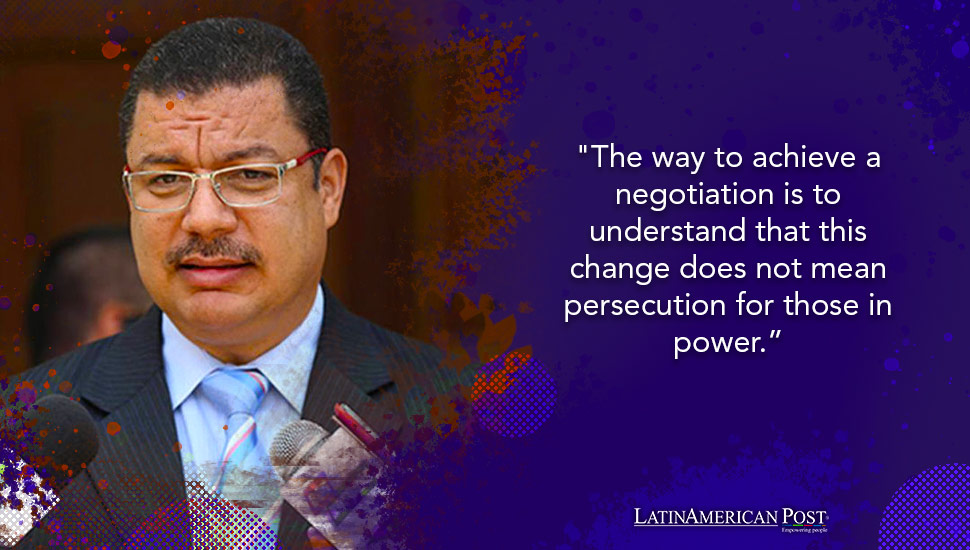Antichavista Unity Crucial for Post-Election Stability in Venezuela

Maintaining unity among Venezuelan opposition groups, particularly within the Democratic Unity Platform (PUD), is not only crucial for winning the upcoming presidential elections on July 28 but also for ensuring political stability and fostering reconciliation in a deeply divided nation. The PUD, as the primary opposition coalition, plays a significant role in these elections, and its unity is key to presenting a strong and credible alternative to the current government.
Venezuelan opposition leader Simón Calzadilla underscored the transformative potential of unity among anti-Chavista factions, particularly within the primary opposition coalition, the Democratic Unity Platform (PUD), in the lead-up to and aftermath of the presidential elections on July 28. The general secretary of the Movement for Venezuela (MPV) emphasized that if PUD candidate Edmundo González Urrutia emerges victorious, the unity of the anti-Chavista groups must be preserved, and efforts should be made to include members currently supporting Venezuelan President Nicolás Maduro. This vision of a united and reconciled Venezuela offers a beacon of hope in these challenging times.
Calzadilla pointed out that only a small faction within the Chavista camp resists change, fearing the loss of their privileges under a González Urrutia administration. However, he stressed that the majority are open to change. “The way to achieve a negotiation is to understand that this change does not mean persecution for those in power. It is a difficult and delicate issue because the harm done is significant,” he noted. He also warned that a lack of unity within the opposition could lead to a fragmented and ineffective government, further exacerbating the country’s political and economic crisis.
Former deputy Calzadilla also highlighted the importance of dialogue, reconciliation, and reunification as crucial steps for the country’s future. This stance is particularly significant in Venezuela’s prolonged political and economic crisis, which has been marked by hyperinflation, widespread poverty, and a severe shortage of basic goods. The crisis has deepened social divides and led to a significant loss of trust in the government, making the need for unity and reconciliation even more pressing.
Lessons from Latin American Political Transitions
Looking at Latin America, history has shown that successful political transitions often hinge on unity and inclusion. In Chile, the post-Pinochet era saw broad coalitions working together to rebuild democracy. Similarly, Argentina’s transition from military dictatorship to democracy involved integrating diverse political factions to stabilize the country. These examples underscore the importance of Calzadilla’s call for unity and reconciliation.
Maintaining unity within the PUD and including moderate Chavista supporters could foster a more inclusive political environment. This approach not only enhances the legitimacy of the opposition but also helps to mitigate fears among the ruling elite, making a peaceful transition more feasible. Furthermore, it could lead to a more balanced and effective governance, as diverse perspectives and experiences are brought to the table, ultimately benefiting the Venezuelan people.
Edmundo González Urrutia, the PUD’s candidate, emphasized the crucial role of vigilance during the upcoming election. “We must not only be content with going to vote on the 28th, as we surely will, but we must also be very, very alert in monitoring and controlling the vote,” González Urrutia stated during a meeting with youth and political leaders in Caracas. Your active participation in this process is vital for ensuring a fair and transparent election.
The call for electoral vigilance is crucial in a country where allegations of fraud and manipulation have marred electoral processes. Ensuring a fair and transparent election is fundamental for the credibility of the electoral outcome and the new government’s legitimacy.
Reconciliation: A Path to National Healing
The emphasis on unity and reconciliation also resonates with the broader need for national healing. Venezuela’s political, economic, and social turmoil has left deep scars. Rebuilding trust among citizens and between the government and the governed is essential for sustainable peace and development.
Reconciliation efforts must address the grievances and injustices faced by various groups, including the Chavistas. This involves political negotiations and social and economic measures to improve living conditions and restore dignity to affected communities. Including moderate Chavistas in the new government could symbolize a commitment to bridging divides and fostering a sense of national unity, without compromising the opposition’s unity and its commitment to democratic principles.
Latin America’s history of political transitions offers valuable insights for Venezuela. Countries like South Africa, which managed to navigate post-apartheid reconciliation through inclusive policies and truth commissions, provide a blueprint for Venezuela’s potential path to peace. Similar strategies could help Venezuela address past wrongs while building a more inclusive and democratic future.
Unity as a Cornerstone for Stability
In conclusion, maintaining unity within the Democratic Unity Platform (PUD) and fostering reconciliation are not just necessary for Venezuela’s future stability, but they also hold the promise of a more inclusive and prosperous nation. The lessons from Latin American political transitions underscore the transformative power of inclusive approaches in achieving lasting peace and democracy. As Venezuela approaches its crucial presidential elections, the call for unity, vigilance, and reconciliation must be at the forefront of the opposition’s strategy, offering a path towards a brighter future.
Also read: Venezuela’s Maduro Claims Against Opposition a Ploy for Power Retention
The path ahead is undoubtedly challenging, but with a united opposition and a commitment to inclusivity and justice, Venezuela can move towards a more stable and prosperous future. The legacy of this election and the actions taken by the new government will shape the country’s trajectory for years to come. Therefore, all stakeholders must work together to ensure a peaceful and democratic transition.





